Steve McQueen’s Small Axe (2020): Criterion Blu-ray review
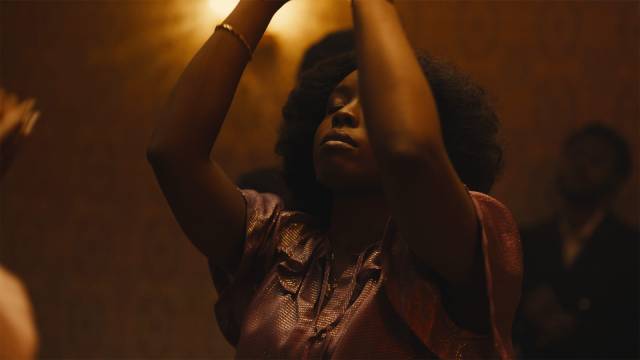
It wasn’t until the late 1950s and early ’60s that British popular culture began to take issues of class seriously. For the first time, the working class began to be treated as more than comic relief in the so-called kitchen sink dramas, while television looked for subjects beyond London and the Home Counties, making the people of the industrial North and London’s East End visible on movie screens and in living rooms. But despite left-leaning creators like directors Ken Loach and Alan Clarke and writers like Barry Hines, Alan Bleasdale and Roy Minton, there remained a blind spot: race. On screen, the emerging underclass was essentially white. Even when race did make an appearance, as in a movie like James Clavell’s To Sir, With Love (1968), it was embedded in the context of class and economic inequality.
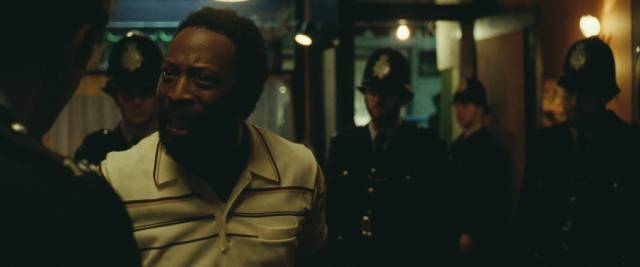
Despite centuries of colonialism, with the Empire spread around the world – and deep involvement in the slave trade of the 17th and 18th Centuries – race as an issue was largely kept at a distance, contained in occupied lands. During the days of Empire, a white colonial minority used violence to maintain control of non-white majorities, a violence enforced with military and police power and fuelled by a racist conviction of superiority. With the mid-20th-Century dissolution of Empire, and immigration to Britain of former colonial subjects, the racism was now directed from the white majority to the new non-white minority, enforced not by military power but by the police and civil society. In this, there was little if any differentiation along class lines – after all, the enforcers of colonial power had largely been recruited from the lower classes, whose own sense of Englishness was rooted in their whiteness.
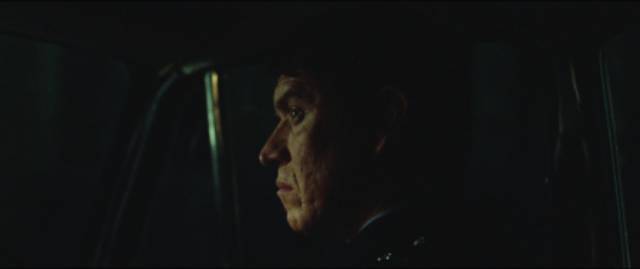
Ironically, the first wave of immigration from the West Indies resulted from a need for workers to compensate for a serious post-war labour shortage, this constituting a continuation of colonial exploitation on home ground. While making use of these immigrants, British society was not willing to accept West Indians as full citizens – a situation which resulted in the Windrush Scandal of the 2010s which saw the British government arresting, denying rights to and even deporting people who had arrived in the country decades earlier as British citizens, but were now targeted as “illegal” residents, part of an openly stated Conservative policy to make Britain a “hostile environment” for immigrants.
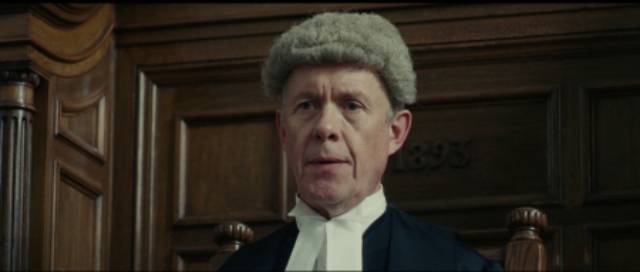
But while this became official policy for the 21st Century Conservative government, the hostility had been implicit – and frequently overt – since the 1950s. And yet, other than occasional works outside the mainstream, like Horace Ové’s Pressure (1976), this history had remained largely unseen on British screens until London-born filmmaker Steve McQueen returned in the late teens from a half-decade in Hollywood where he had gained international stature with the award-winning 12 Years a Slave (2013). Back home, working with co-writers Alastair Siddons and Courttia Newland, he developed a series of five films about the experiences of London’s West Indian community from the ’60s to the ’80s, three of them based on actual events, the other two providing imaginative recreations of more generalized experiences.
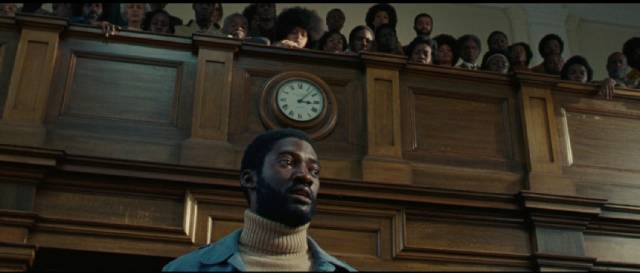
This ambitious project, made under the series title Small Axe (2020), deliberately refers back to the class-conscious productions of the ’60s and ’70s, not least in having been produced in association with the BBC, where key figures like Ken Loach and Alan Clarke had created such influential work. By being screened on BBC One, the series both symbolically and practically corrects a long-standing omission in the nation’s contemporary history, using and adapting well-established dramatic tools in the process. These five films, ranging in length from just over an hour to more than two hours, bring a particular cultural and political perspective to a long tradition of socially-conscious drama.
Like much of McQueen’s work, which takes a seemingly cool, detached position in relation to inherently intense subject matter, Small Axe observes events without making emphatic points, but rather creating space for viewers to react and form opinions for themselves, an approach which calls into play individual conscience. McQueen’s unadorned delivery makes room for the viewer’s own anger to emerge in response to the injustices being shown, a more potent emotional engagement than if the filmmaker had openly displayed his own anger.
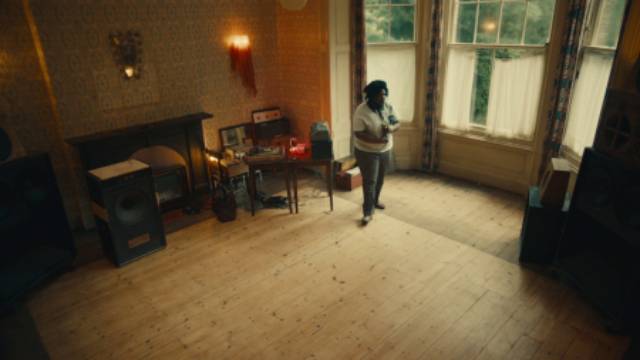
Each film, while contributing to a larger picture, stands on its own, and they vary in narrative scale, beginning with the broadest canvas in Mangrove, while narrowing the focus to individual experiences in the four subsequent films. What is constant is the awareness of racism and its impact on both communal and individual lives. The overall effect is potent, with its depiction of a community dealing with the same kind of everyday issues anyone might experience while being constantly aware of that extra layer of tension and insecurity, of an injustice which is always imminent in any social encounter outside the confines of the community – and all too often penetrating into the community so that even in the most upbeat and supportive moments something dark can come crashing down for no legitimate reasons.
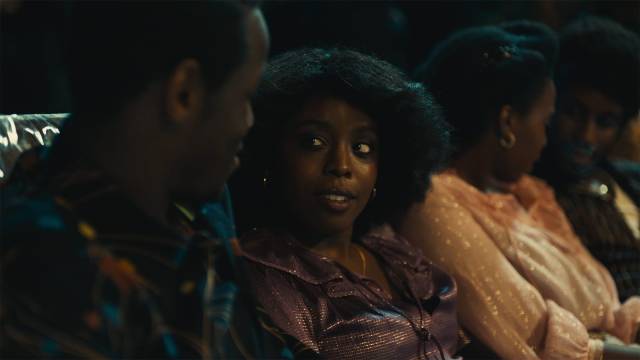
While that darkness lurks in many social institutions, it’s most prevalent and visible in the interactions of the police with the community. This is at the core of Mangrove, the first and longest of the five films. When Frank Crichlow (Shaun Parkes) opens a restaurant called the Mangrove in Notting Hill at the end of the ’60s, he’s determined to play by the rules – no illicit activity, no gambling, just a place where people can gather and eat good food. But he’s already targeted by the local police, in particular Constable Pulley (Sam Spruell), who declares that “these people” have their place and they have to reminded of it. And so the Mangrove is repeatedly harassed, with Pulley and others crashing in to “search” for drugs, an excuse to smash things and drive away customers.
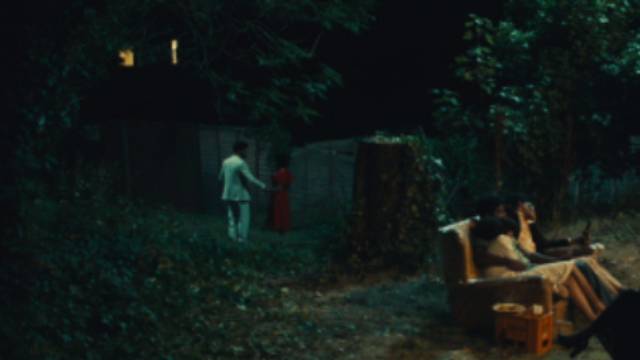
Crichlow has no ambition to be a figurehead, but as Black Panther Altheia Jones (Letitia Wright) points out, the community itself has adopted the restaurant as a focal point, a place where they can experience for a moment something of what they left behind in the West Indies. As the police harassment increases, so does the sense of communal solidarity, with a march being organized in 1970 to protest the harassment. Despite the peaceful nature of the protest, the police react with violence, triggering what is deemed a riot for which nine members of the community are eventually arrested and charged. In what seems a depressingly familiar pattern, oppression breeds resistance, resistance is deemed illegitimate and is met with more extreme oppression, and the blame is placed solely on those being oppressed.
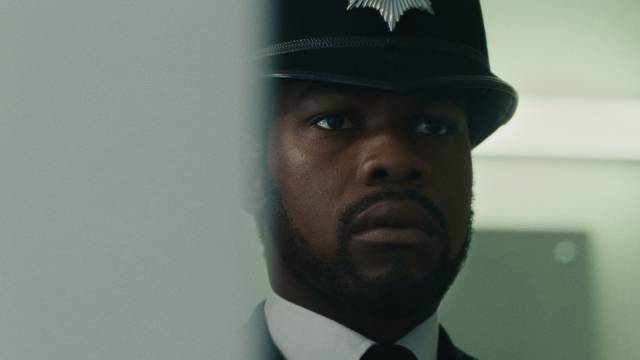
However, at the initial trial the magistrate threw out the case, unconvinced by police testimony. But that could hardly be allowed to stand, and the Director of Public Prosecutions reinstated the charges and raised the case to the Central Criminal Court, suggesting that it was seen as far more serious than a local skirmish. What had begun as a small protest was being transformed into a dangerous challenge to the status quo. There were disagreements among the defendants and their counsel about strategy, with one barrister advising pleading guilty and accepting a diminished punishment, while another saw the case as an opportunity to challenge the whole judicial apparatus; two of the defendants opted to defend themselves, taking the opportunity to address the court and cross-examine police witnesses directly.
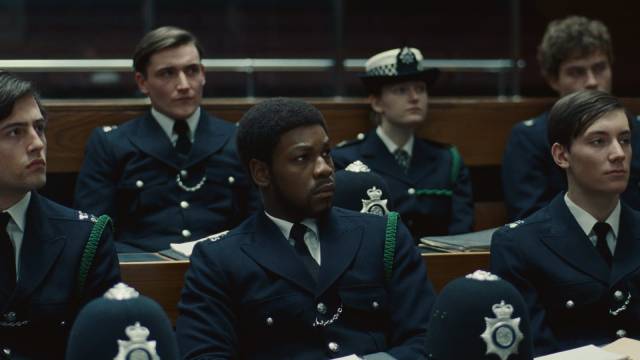
Their point of view challenges the legitimacy of the system from the start, with a motion demanding an entirely Black jury, because the law says that the accused should be judged by their peers. Judge Edward Clarke (Alex Jennings) takes offence at the idea that white Britons can’t impartially evaluate Black actions. Throughout the trial, he reveals his antipathy to the defendants; as testimony from the police appears increasingly dubious, he feels it necessary to tell the jury that the police can be trusted implicitly because there is no conceivable reason for them to lie. And yet it’s defendant Darcus Howe (Malachi Kirby)’s minute deconstruction of the key police witnesses’ testimony which convinces the jury that police are indeed lying and that their lies are fuelled by deeply ingrained racist attitudes, ultimately convincing the mostly-white jury to acquit all the accused, undermining for good the cozy image of the British Bobby as someone who can be trusted.
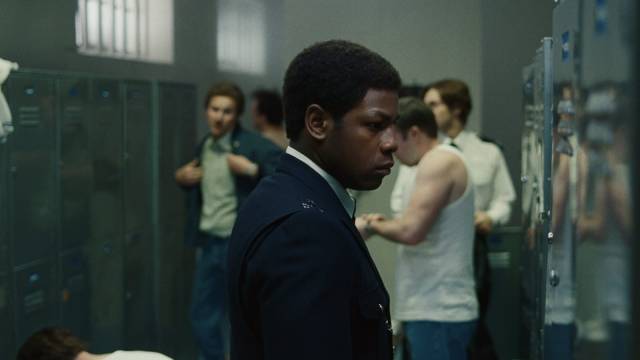
But despite that moment of triumph in court, Mangrove ends with some text explaining that, while the restaurant remained open until 1992, it continued to be harassed by the police in the ensuing two decades.
Having established a clear context with Mangrove, McQueen switches gears with the second film, Lovers Rock. Taking place over a single night at a “blues party”, it shows a community creating a space for itself in accordance with a self-image separate from how the surrounding society sees it. That image is centred on music, food and dance, social rituals which hold harsher realities temporarily at bay. It was apparently common for someone to provide their home for such parties, stripping out furniture, cooking huge quantities of traditional foods, and installing large makeshift sound systems. Paying a small door charge, friends and neighbours would cram into the house and dance the night away.
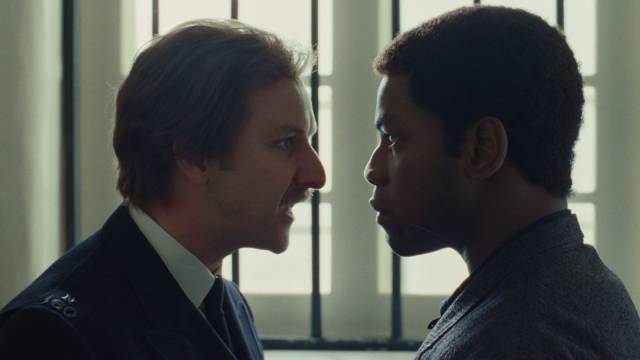
Martha (Amarah-Jae St. Aubyn) sneaks out of her family home and joins her friend Patty (Shanique Okwok) for a bus ride to the party. As the evening progresses, the house becoming increasingly packed with people giving themselves over to the music and pairing off, occasionally taking a respite in the back garden where much of the furniture had been dragged, Martha is hit on by the predatory Bammy (Daniel Francis-Swaby) and drawn to Franklyn (Micheal Ward). Moods ebb and flow, time absorbed in an atmosphere of trance – when the long, hypnotic “Silly Games” by Janet Kay ends, the dancers don’t stop but take up the song themselves and McQueen holds on the moment for ten full minutes, succumbing like the dancers to a kind of ecstatic languor.
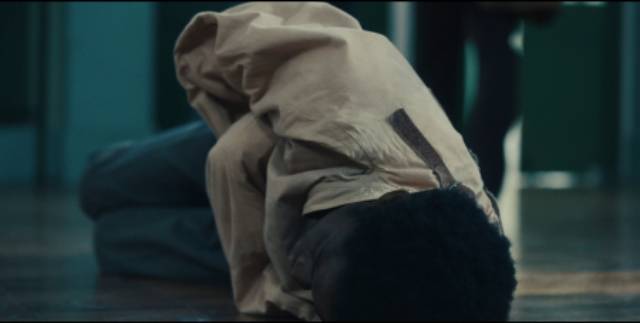
But even as a bond grows between Martha and Franklyn, the night is nonetheless touched by occasional darker notes. When Patty leaves early because Martha’s attention has shifted decisively to Franklyn, Martha runs after her only to be hassled by four white youths in the street, who back off only when the large Rastafarian doorman confronts them. Partway through the evening, Martha’s cousin Clifton (Kedar Williams-Stirling) crashes the party, bringing anger and family conflict with him – he’s only let in because as he causes a disturbance on the doorstep, a police car rolls slowly by in the street out front. And at one point Martha discovers Bammy attempting to rape Cynthia (Ellis George), whose birthday the party is celebrating, in a dark corner of the garden; she confronts him and he turns on her threateningly until Franklyn approaches to see what’s happening. Even in the celebratory atmosphere of the party, tension and potential violence are close at hand. But at dawn, Franklyn and Martha head off together on a bicycle, seemingly free and happy, agreeing to reconnect the next evening.
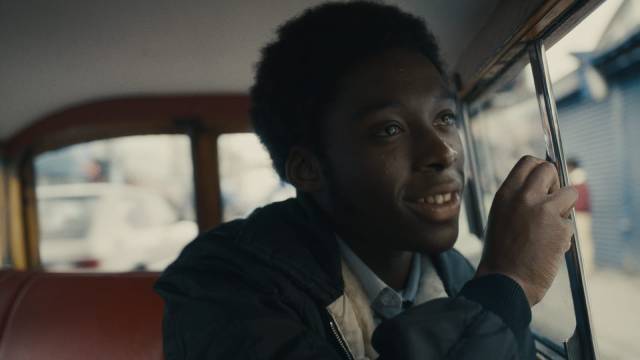
The final three films all hearken back to the socially conscious productions of the ’60s and ’70s, each focusing on an individual’s interactions with institutional prejudice and violence. In Red, White and Blue, research scientist Leroy Logan (John Boyega) abandons a successful career in order to engage more directly with the community, choosing seemingly counter-intuitively to join the police in order, as he states openly, to transform the force from within. Facing prejudice from the police, he is also attacked by the Black community as a traitor, not least by his father Kenneth (Steve Toussaint) who feels particularly embittered having been brutalized by the police himself.
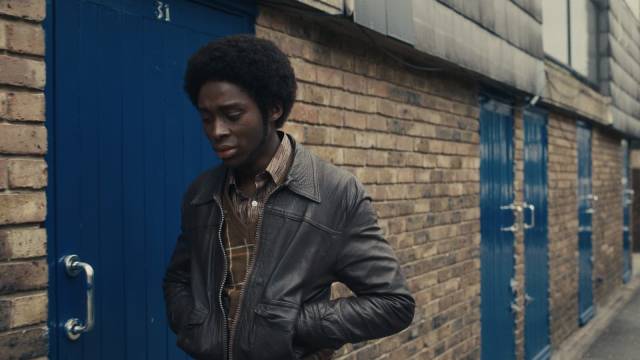
Leroy’s education sets him apart from most of the other recruits and he performs exceptionally well during training, only to encounter resentment and disdain when he arrives at his assigned station. He’s vocal about his intentions and his colleagues are openly racist around him. After confronting another officer about his unacceptable brutality in handling an arrested man, Leroy is increasingly ostracized. Racist slurs are scrawled on his locker and, when pursuing a suspect and calling for back-up, he gets no response and is viciously beaten by the suspect. Demanding to know why no one responded to his call, the other officers respond with contemptuous smirks. It seems unlikely that his determination will shift the deeply embedded racism of the force, but there’s a tentative reconciliation with his father who finally acknowledges the sincerity of his son’s choice.
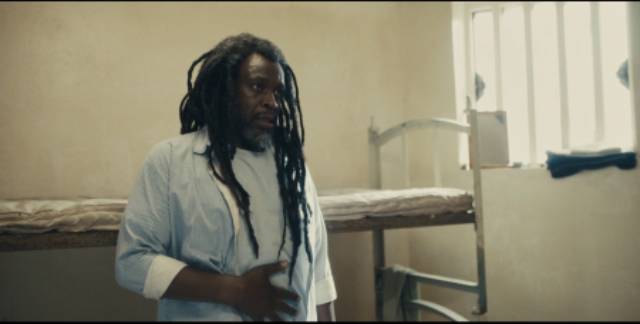
For the eponymous Alex Wheatle in the fourth film, damage begins in early childhood when he’s consigned to a children’s home in Surrey. Brutalized by staff for whom his slightest transgression is more visible because of his skin colour, he grows up disconnected from the community he was born into. When transferred in his late teens from the home to a residence in Brixton, he suddenly finds the world opening up – the streets are alive with colour and sounds that are totally different from what he’s used to. Introduced to the streets by fellow resident Dennis (Jonathan Jules), who can’t believe how naive Alex (Sheyl Cole) is, he develops a passion for music, spending every penny he can scrape together at a local record store, and begins to write poetry.
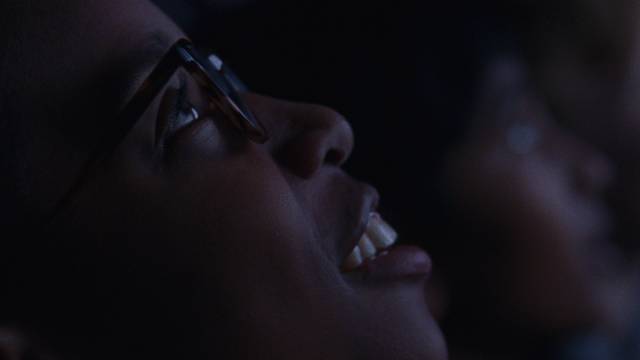
When demonstrations against racism turn into the Brixton riots of 1981, Alex finds himself arrested, convicted and sent to prison, once again trapped in a brutal institution which negates his individual identity. But his cell-mate Simeon (Robbie Gee), a Rastafarian with a developed political and historical perspective on Black experience in Britain, takes it on himself to begin educating Alex, gifting him an entire shelf of books, beginning with C.L.R. James’s The Black Jacobins, a leftist analysis of the Haitian revolution. Gradually, Alex begins to understand the community he has been separated from his entire life. Shown a new path, the real Alex Wheatle went on to a successful career as a writer of books for young adults.
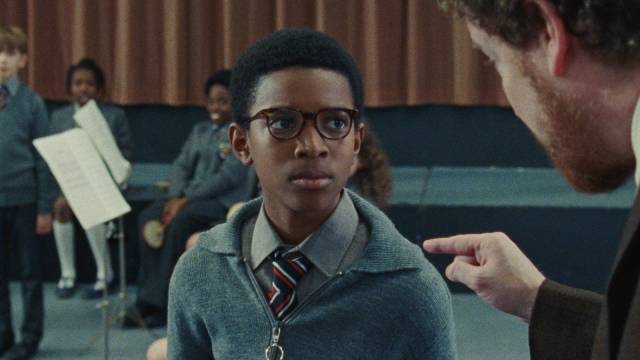
While the previous two films told the stories of real people, the final film is fiction based in part on McQueen’s own experience. Education is an indictment of a system which deliberately channels Black children into sub-par schools, essentially guaranteeing that they will never achieve anything more than a life of menial labour. Kingsley Smith (Kenyan Sandy) dreams of being an astronaut, but he can’t read, something his contemptuous teachers either don’t notice or simply don’t care about. Frustrated, he occasionally acts out in class and his teachers respond brutally. The headmaster (Adrian Rawlins) calls in his mother and tells her that IQ tests show that Kingsley is sub-normal and must be transferred to a “special school”. (IQ tests have always been notoriously subject to cultural bias, to a degree which seems suspiciously deliberate as a means of privileging members of a dominant class … or race.)
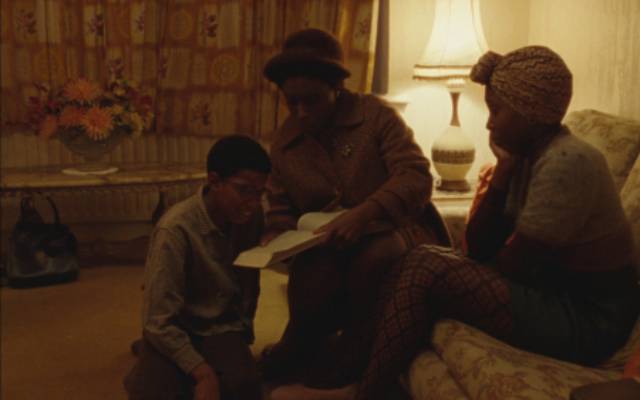
Kingsley’s mother Agnes (Sharlene Whyte) is exhausted by working two jobs – after finishing her shifts as a nurse, she cleans other people’s houses – and has no patience for her son’s “trouble-making”. More importantly, she has implicit trust that the school really is committed to providing the best education. But when Kingsley arrives at the school for the “educationally sub-normal” he finds himself surrounded by a group of misfits with various behavioural problems who are dumped in classrooms where disinterested teachers pretty much leave them to their own devices (in one of the film’s most excruciating scenes, the tone-deaf teacher gives an interminable rendition of “House of the Rising Sun” while he strums on a guitar; he concludes the “lesson” by asking who wrote the song and, apparently unaware that it’s a traditional folk song going back decades if not centuries, declares emphatically that it was The Animals).
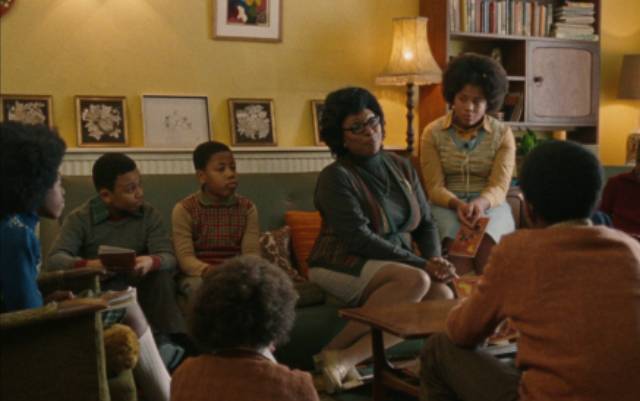
One day, as Kingsley tries to make a break from the school, he runs into a woman who begins questioning him and leads him back inside to the unattended classroom, asking the kids their names. When the teacher finally reappears, she’s identified as a psychologist named Hazel (Naomi Ackie) – and later is revealed to be a member of a community group, essentially entering the school undercover to identify kids who have been dumped there by the system. Soon after, a woman named Lydia (Josette Simon) knocks on the family’s front door and begins to explain to Agnes what has been done to her son, handing her a booklet which explains the deliberate sidelining of minority children by the system.
But Agnes is busy and distracted and unwilling to listen to this busybody. It’s only later that she begins to question the situation and ask Kingsley about the school. When she demands that he read something to her, she finally realizes that he has been hiding his inability out of a sense of shame. Confronting his original headmaster, she no longer has any illusions about how the system has essentially tossed Kingsley on the rubbish heap, and she joins the community group working to change the system. However, the schools themselves remain intractable and the community has established an alternate system for teaching these kids a more accurate account of their own history and their place in British society.
*
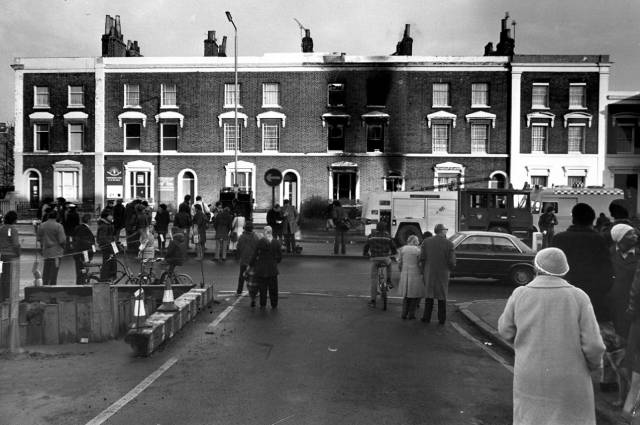
In Small Axe, McQueen and his co-writers use familiar and long-established politically-engaged dramatic techniques to bring to light what those techniques elided as they made the working class visible in the ’60s and ’70s. By appropriating the methods of left-leaning, socially-active filmmaking to tell these stories of the West Indian immigrant community, these films not only reveal what has been largely ignored in popular culture, but also provide a critique of the implicit limitations of the social and political perspectives which worked to transform Britain’s class-bound society in the post-war years. Like many of the films and television dramas on which this series has been modelled, Small Axe engages the audience through identification and empathy with individual stories to illuminate larger social issues.
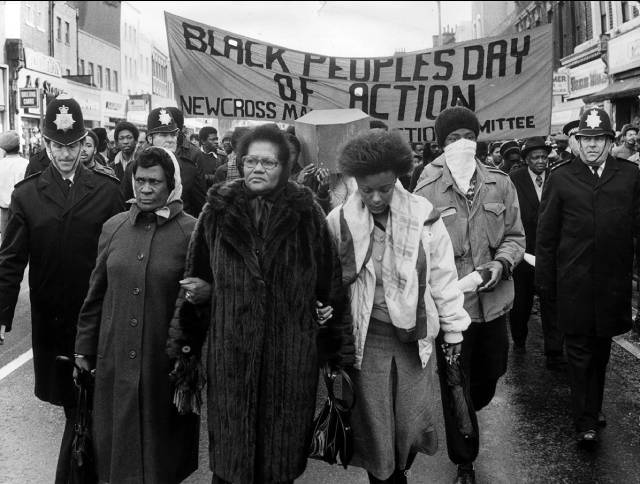
In Criterion’s Blu-ray set, these stories are given potent support by the inclusion of a third disk devoted to the three-part documentary Uprising (2021), co-directed by McQueen and James Rogan, which deals with the New Cross Fire in 1981 in which thirteen young people died at a party like the one in Lovers Rock. Using archival material and new interviews with survivors, relatives and even police involved in the investigation, the documentary grounds the series’ themes in a devastating reality. The community believed that the fire was the result of a racist attack, but the investigation failed to establish the cause – partly due to weaknesses in the forensic analysis of the fire, partly due to the police quickly coming to the conclusion that it must have resulted from a fight among people attending the party, despite none of the survivors offering any evidence that such a fight occurred. The situation was aggravated by the coroner rushing the inquest before the investigation was completed in a futile attempt to quell the rising feelings of racial conflict welling up around the fire’s aftermath.
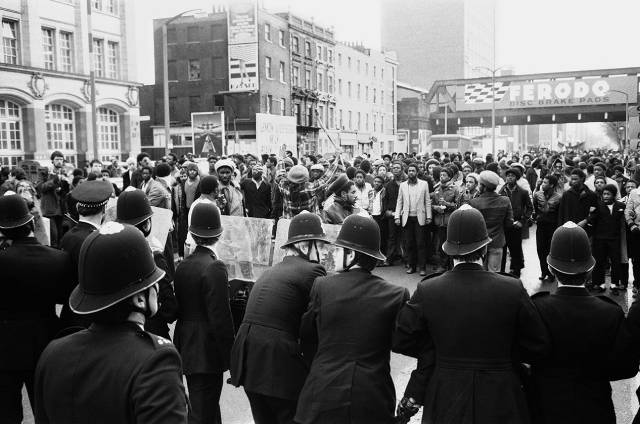
It was largely this situation which led to demonstrations in 1981 which – once again provoked by an aggressive police response – erupted in the Brixton riots. The sense that the authorities placed no value on the Black lives lost in what may have been a deliberate racist attack galvanized the community, but also triggered a rise in overt racism against the community. Even forty years later, the grief and anger expressed in the interviews is palpable and raw; what the documentary reveals informs everything which is dramatized in the five films of Small Axe, giving the series added weight as an important revelation of recent British history.
*
The disks
While all five films are unified by McQueen’s familiar stylistic tendencies – unadorned, given to lingering on moments and details until they take on a weight and significance which may not be immediately apparent – they display subtle differences due to variations in the medium used: Mangrove and Red, White and Blue were shot on 35mm film, the former in a scope ratio of 2.39:1, the latter 1.85:1; Lovers Rock and Alex Wheatle were both shot in 4K video, the former at 1.78:1, the latter 2.00:1; and, reflecting its influences, Education was shot on Super 16mm, with a ratio of 1.60:1. These differences give the series the feel of a collection gathered over time rather than a uniform set of episodes made together, adding to the sense of a newly unearthed history.
The supplements
In addition to Uprising, which is too substantial to be considered an “extra”, the set includes brief behind-the-scenes featurettes on each episode, totalling just over twenty minutes, as well as very brief trailers. More substantially, there’s a lengthy conversation (28:08) between McQueen and academic Paul Gilroy, who served as an advisor on the series, and an audio conversation (25:57) between McQueen, series music supervisor Dennis Bovell and Mike D of the Beastie Boys about the importance of the music to the films and to the community itself.
The booklet essay is by programmer and critic Ashley Clark.
Comments